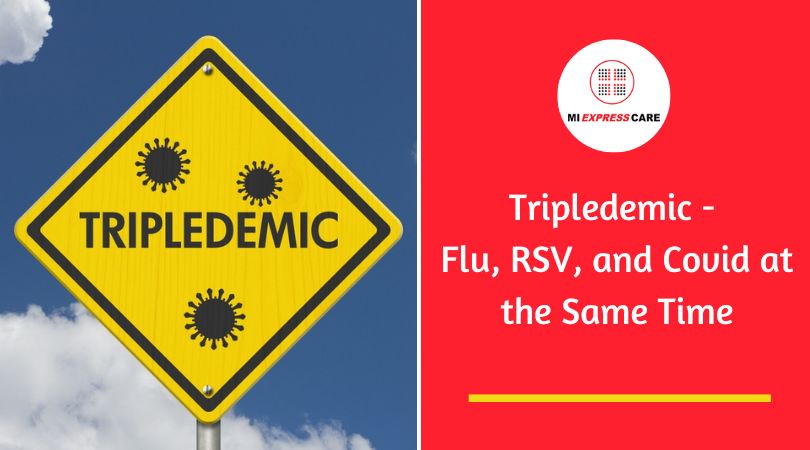


Currently, the US is facing a Tripledemic, where three respiratory diseases, i.e., COVID-19, influenza (flu), and the Respiratory Syncytial Virus (RSV), are spreading quickly simultaneously. However, the COVID-19 pandemic has reduced in intensity, with cases occurring daily, but RSV cases are spiking. Additionally, we are also experiencing the flu season. Continue reading to learn the differences between these three diseases.
The influenza virus causes the flu, while COVID-19 is caused by the novel SARS-CoV-2 virus. The respiratory syncytial virus causes RSV and can severely affect kids and the elderly. Approximately 58,000-80,000 children are hospitalized due to RSV annually.
The difference between flu, RSV and COVID-19 symptoms include the following:
| Symptom | COVID-19 | Flu | RSV |
| Fever | 100°F or more | 100°-102°F | 100°F or more |
| Headache | may or may not occur | usually occur | Mild headache |
| Fatigue | may or may not occur | usually occur | may or may not occurs |
| Shortness of Breath | usually occurs | may or may not occur | Short, shallow, slow or rapid breathing |
| Runny Nose | may or may not occur | may or may not occur | usually occur |
| Stuffy Nose | may or may not occur | may or may not occur | usually occur |
| Sneezing | may or may not occur | may or may not occur | usually occur |
| Sore Throat | may or may not occur | may or may not occur | usually occur |
| Diarrhea | may or may not occur | may or may not occur | may or may not occur |
COVID-19, the flu, and RSV have common symptoms like cough, runny nose, and fever. You can get infected with RSV and COVID at the same time. However, an RSV infection can be differentiated by its unique symptom of wheezing or rattling breath.
Some tips to protect your family from respiratory diseases include:
Get medical help if you’ve severe flu symptoms like a sore throat, trouble breathing, and cough with excessive mucus or if your RSV symptoms worsen or don’t subside within seven days. Additionally, seek medical help if you suspect a COVID-19 infection. If you’re a COVID-19 patient experiencing symptoms like breathlessness, increased confusion, constant pain, or pressure in your chest, then get immediate medical attention.
The COVID-19 pandemic hasn’t subsided completely. Therefore, getting yourself tested for COVID-19 and other respiratory diseases helps to identify and treat them quickly. It also minimizes the chances of community spread of the conditions.
Though vaccines against the flu and COVID-19 are already available, researchers have yet to be able to develop a successful RSV vaccine. Though medicines are available to protect high-risk kids from RSV, the best method to protect your family from most respiratory diseases is to follow proper sanitization measures and limit contact with infected persons. Additionally, get adequate medical advice if your child or elderly loved one has a high risk of contracting a respiratory disease.
Contact the MI Express Urgent Care in Ann Arbor & Canton MI for expert medical help if you suspect a COVID-19, flu, or RSV infection. We’re well-equipped to ensure early detection and treatment of lung infections.